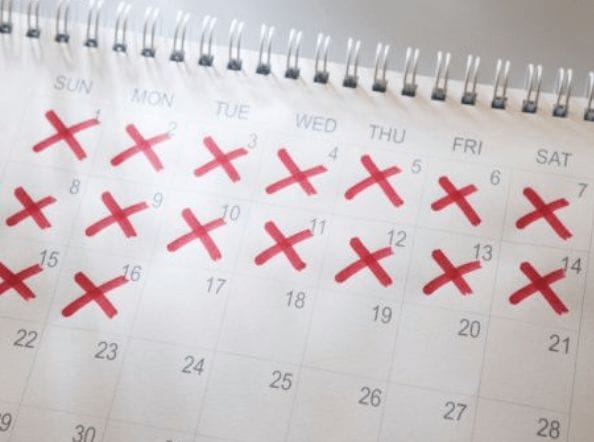What if I was a fitness genie and could grant you one wish? Well, a realistic wish.
No, I can’t wave a magic wand and *poof* abs will appear. That would be neat though. #AbsGenie
This is, in fact, a question I ask new coaching clients and Members at our training studio:
“If I could wave a wand and grant you one wish to change something about your health and fitness behaviors, what would that be?” (The key word here is behaviors.)
After some thought, the answer is almost always CONSISTENCY.
This shows me two things:
-
Not every human is motivated to exercise regularly. If that sounds like you, that’s completely normal. SO normal that those who never miss a workout are the outliers. For those humans, see tip #4!
-
People understand that change takes time and making improvements to your health and fitness is not a one and done deal. It’s going to take time, effort, and consistency to change the necessary habits that got you where you are today.
Why do we often skip by the important habits?
Consider this:
“Bad habits are easy to form, but hard to live with. Good habits are hard to form, but easy to live with.”
This is why consistency can be such a struggle for most humans. There are also ways to change that.
1. Start small.
You may have heard of a little book called ‘Tiny Habits’ by BJ Fogg. This is a simple and well-documented principle of starting with a habit so ridiculously small that it’s nearly impossible for you to fail.
Once you nail your first tiny habit, the next step is to start a new one and continue building your tiny habit army.
This concept is ESPECIALLY important to form a new habit in something that doesn’t particularly excite you. For most of our Members that tends to be diet and exercise.
The reality is also that our motivations in different things will make some habits easier than others (sliding scale model for motivation). Not only that is some days are going to be easier than others. Starting small (I’ll also add simple) will greatly increase the likelihood of your success (especially with the ones you don’t enjoy doing).
Remember: Small hinges swing big doors.
2. Habit formation takes more than 21 days.
The most recent research points towards a timeframe of 18 to 254 days to build a new habit. That’s a HUGE variance from person to person so it makes sense to play the long game.
While this may sound like a bummer, the truth is this knowledge can be extremely helpful. First, it means that if you don’t quite nail a new habit right away it doesn’t mean you’ve failed. You might just need a little more time for it to stick. Second, it means that you don’t have to be perfect. #ProgressNotPerfection
3. Focus on the habit first.
After working with hundreds of clients over 10 years I’ve learned one thing: people almost ALWAYS start by focusing on the results. This is typically something like “I want to lose 40 lbs by next year” or “I want to be able to squat 50 more pounds by the end of this program”.
While I don’t believe having tangible goals isn’t inherently bad, I believe that starting with results isn’t the best approach.
Instead, it can be extremely beneficial to stay hard focused on the necessary habits first. While I can’t point to hard data, I’ve found that those who focus on the habits like showing up, making incremental progress over time (1% better!!!), and sticking to a program tend to both have an easier time sticking to it AND get better results.
4. It doesn’t have to be something you like.
I DO believe that the more you don’t like to do something the more difficult it’s going to be to stick to it. I think we can all agree here.
But I also agree that you don’t necessarily have to like something to be able to do it. Sometimes you just have to chalk it up to being part of life and get it done.
For some of you out there, however, there’s going to be a couple HUGE game-changers. First is going to be one of the cornerstones of Self-Determination Theory which is ‘relatedness’ or simply doing it with a like-minded community. The second less scientific principle we believe in at First Guess Fitness is that it can be fun.
Simply stated: You don’t have to ‘love’ exercise but if you’re having fun and doing it with people you like then you’re more likely to stick to it.
5. Have a starting ritual to make it easier to stick too.
I’ve found that the hardest part for most people is the energy required to engage or start a behavior repeatedly. This could be the energy to show up to the gym in the morning each week or prepare meals for the week.
Finding ways to reduce the starting friction can be the single most important step for some people to NAIL their habit change. These starting rituals are super important for helping you stick to a new habit long enough to make sure it sticks.
In the examples above, starting rituals for getting to the gym in the morning is simply having your gym clothes ready to go, having your work stuff ready to go, or putting it in your calendar. For meal prep you can have a meal delivery service or have a ‘menu’ of easy to prepare meals.
Habit change is simple but it’s never easy. Hopefully these tips can help you make some huge changes. Remember: little hinges swing big doors.
I believe in you!
Steve
P.S. Want some extra motivation to stay consistent from our team of super-inspiring and kick-ass trainers?
Come try us out for a customized plan, 4 small group personal training sessions, and lots of fun for only $49!


